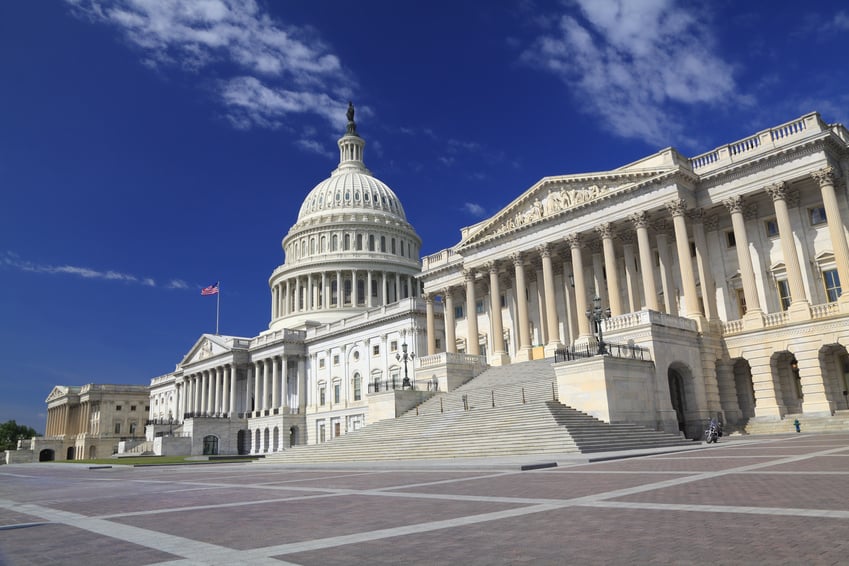In brief
The South African Competition Commission (“Commission“) recently released its Economic Concentration Report (“Report“), which highlights patterns of concentration and participation in the South African economy. The Report includes details on the Commission’s power to launch market inquiries into highly concentrated industries, as well as its increased authority to impose structural remedies on businesses in these sectors.
In March 2022, the Commission briefed Parliament’s Portfolio Committee on Trade and Industry on its Report. The Report was released in late 2021 and highlighted patterns of concentration and participation in the South African economy. It includes details on the Commission’s power to launch market inquiries into highly concentrated industries and its increased authority to impose structural remedies on businesses in these sectors. Such remedies are deemed necessary to remove barriers to entry for new participants, primarily for small and mid-size enterprises (SMEs) and firms owned or controlled by historically disadvantaged persons (“HDP Firms“).
It has been widely recognized that South Africa’s markets and ownership structures are excessively concentrated, owing primarily to the legacy of historical disadvantage. South Africa’s constitutional mandate prioritized the abolition of racialized economic structures, which was a glaring feature of the previous political dispensation. A more robust system of regulating competition was formulated as a lever to advance the broader process of economic transformation. The democratic government made competition regulation its preferred method of regulating private enterprises in the public benefit to, amongst other things, foster an economically inclusive economy.
This is the context out of which the Commission sought to conduct an initial study on concentration levels in the economy. The initial study found that certain industries in South Africa, including ICT, energy, financial services, food and agro-processing, infrastructure and construction, intermediate industrial products, mining, pharmaceuticals and transport, were highly concentrated. The Commission utilised market share estimates in these industries as a proxy to inform its assessment of the structural conditions. The Report builds on the Commission’s preliminary research into structural conditions in various market sectors. For example, the Report states that the top three firms generate 50% of wind and solar power, and the top three refineries and LPG suppliers have a market share of more than 65%.
The Report highlights the shift in emphasis from simply protecting competition and market participation to more actively promoting improvements in competition, reducing concentration in the economy and actively promoting broader participation and a spread of ownership. It has become trite that the mandate of the South African antitrust authority is dual in nature. It has always been the case that the Commission’s remit transcends pure competition issues into the realm of the public interest, which includes economic transformation. It is in this context that amendments were effected into the Competition Act in 2019, seeking to ensure the achievement of economic transformation. These amendments strive to do so through addressing high levels of concentration, enhancing small business development and tackling the “racially-skewed” spread of ownership through merger control, the imposition of structural remedies, the prosecution of abuses of dominance as well as, pertinently, market inquiries.
Specifically, and in relation to market inquiries, the amendments lower the threshold for intervention by the competition authorities by establishing an “adverse effects” test. In other words, the competition authorities will be able to conduct a market inquiry if any feature or combination of features in a market adversely affects competition in that market, even if that impact is not substantial. Following a market inquiry, the Commission may take any action (including imposing structural remedies such as divestitures) to remedy, mitigate or prevent an alleged adverse effect on competition and make a recommendation to the Competition Tribunal (“Tribunal“) for the Tribunal to make an appropriate order in relation to such adverse effect on competition.
Furthermore, upon completing a market inquiry, the Commission can furnish recommendations for a change of policy, legislation and regulations to the Minister of Trade and Industry, as well as recommendations to other regulatory authorities in respect of competition issues. In fact, the findings of the Report are expected to serve as a basis for a broader set of recommendations for government to address deep-seated structural issues related to persistent concentration, a lack of participation, and ownership transformation. The government’s intervention is deemed necessary as most sectors are directly influenced by the government through legislation, regulation, licensing, and procurement, among other things. These levers are considered to have an impact on market structure.
Certainly, it appears from that there are a series of government initiatives aimed at enhancing the economic trajectory of the country, which may be bolstered by the Commission’s recommendations or active role in policy formulation. Inclusive economic growth appears to be placed at the top of the government’s agenda, reiterating the far-reaching economic reform measures outlined in National Treasury’s 2019 economic policy paper, aimed at tackling economic transformation, inclusive growth, and increased competitiveness.
Competition policy is certainly poised to be a key driver of economic reform, with the economic inclusion of SMEs and HDP firms speaking to one of the primary objectives of the Competition Act, which is to provide an opportunity for all South Africans to participate fairly in the national economy. With an alignment of objectives, the competition authorities are expected to play an integral role in the government’s drive for greater economic inclusion. The Commission understands what is at stake, with Commissioner Tembinkosi Bonakele having pointed out that inclusivity is not just a social imperative but also a platform for more competitive and dynamic markets, greater economic growth, and increased employment.
The amendments will empower the authority to “de-concentrate” what it considers to be otherwise highly concentrated markets. The Commission will enjoy more power to launch market inquiries into sectors it considers to be highly concentrated, with increased authority to impose structural remedies on businesses in these sectors if they are found to create barriers to entry for new participants. Moreover, the Commission’s findings following a market inquiry will be binding unless they are challenged in the Tribunal. Therefore, businesses operating in highly concentrated sectors, especially those identified by the competition authorities, should now prepare to be under a more intense spotlight.






